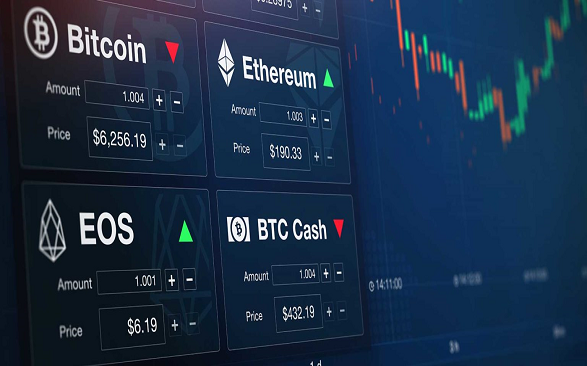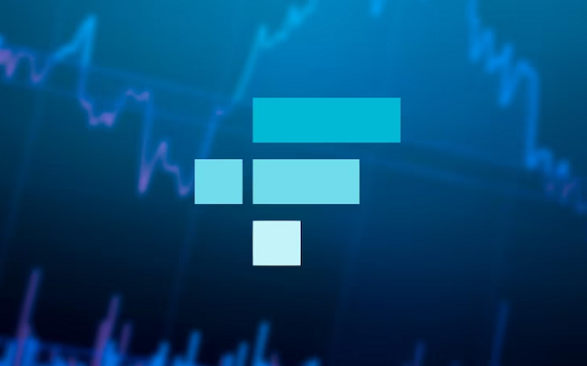Introduction
Generally, an exchange is a platform that allows individuals to buy and sell cryptocurrencies, stocks, bonds, commodities, or other financial instruments. Exchanges make money by charging a small fee on each trade that is made through their platform. This fee is known as a “trading fee” and is typically a small percentage of the value of the trade.
Crypto exchanges are online platforms where you can buy, sell, or exchange cryptocurrencies for other digital currency or traditional currency like US dollars or Euro. They are an essential part of the crypto ecosystem as they allow users to easily buy and sell crypto assets using different fiat currencies or other cryptocurrencies.
To use a centralized crypto exchange, you will need to create an account and verify your identity. Once you have an account, you can deposit funds using a variety of methods, including bank transfer, credit card, or even cash on some platforms. You can then use these funds to buy cryptocurrency using the exchange’s trading platform. Some exchanges also allow you to sell your cryptocurrency and withdraw the funds to your bank account, depending on the applicable regulations or restrictions in your country.
Centralized crypto exchanges act as intermediaries between buyers and sellers. They hold users’ funds in a central location and generally charge a fee for their services. One of the main advantages of centralized crypto exchanges is that they are usually easy to use, even for people who are new to cryptocurrencies. They also tend to offer a wider range of payment options, including credit cards, bank transfers, and other online payment methods.
Centralized crypto exchanges use know your customer (KYC) process to verify the identity of their users. This KYC process is for the purpose of preventing money laundering and financial fraud, as well as to comply with regulatory requirements. During the KYC process, a centralized crypto exchange will ask its users to provide some personal information, such as their name, address, and date of birth. Users may also be asked to provide identification documents, such as a passport or driver’s license, to confirm their identity. Once the KYC process is completed, the exchange will have a record of its users’ identities, which it can use to monitor their activity and ensure that it is compliant with relevant laws and regulations. Some exchanges may also use this information to tailor their services to individual users or to offer them certain benefits.
Centralized crypto exchanges also have some disadvantages. One of the main risks is that they are vulnerable to hacks, as they hold users’ funds in a central location. If the exchange’s security is compromised, users’ funds could be stolen. Centralized crypto exchanges are also subject to regulatory oversight, which can be a disadvantage for some users who value the anonymity of cryptocurrencies. And as has been exposed following the recent FTX implosion, by virtue of being centralized, control of user funds and safety are completely in the hands of owners and managers of these centralized crypto exchanges. This comes with significant risks. Users should therefore always ensure that the centralized crypto exchanges they choose or use adopt global best practices.
1. Binance
Binance is a centralized crypto exchange founded in 2017. It is headquartered in Malta and has become one of the most popular exchanges in the world. Binance offers a wide range of trading pairs and has low fees, which has made it attractive to both beginner and experienced traders.
One of the key features of Binance is its focus on altcoins. In addition to supporting popular cryptocurrencies like Bitcoin and Ethereum, Binance also offers trading pairs for many lesser-known cryptocurrencies. This has made it a popular exchange for those looking to trade less mainstream coins.
Binance also offers a number of advanced trading features, such as margin trading and futures trading. These features are designed for more experienced traders and allow for more sophisticated trading strategies.
Website: https://www.binance.com/
2. Coinbase
Coinbase is a digital currency exchange that allows users to buy, sell, and trade cryptocurrencies such as Bitcoin and Ethereum. It was founded in 2012 and is headquartered in San Francisco, California.
Some key features of Coinbase include the following:
- A user-friendly interface that makes it easy for beginners to buy and sell cryptocurrencies
- Support for multiple payment methods, including bank transfers, credit and debit cards, and PayPal
- A mobile app that allows users to access their accounts and make trades on the go
- Advanced security measures, including two-factor authentication and insured custody of digital assets
- A variety of tools and resources for users, including educational materials, a cryptocurrency news feed, and market analysis
In addition to its main exchange platform, Coinbase also offers Coinbase Pro, which is geared towards more advanced and professional traders. Coinbase Pro offers additional features such as lower fees, more advanced charting tools, and access to additional coins and tokens.
Website: https://www.coinbase.com/
3. Kraken
Kraken is a cryptocurrency exchange that allows users to buy and sell a variety of digital assets, including cryptocurrencies such as Bitcoin and Ethereum. The exchange was founded in 2011 and is headquartered in San Francisco, California.
Kraken operates as a traditional exchange, with users able to place orders to buy or sell assets at a specific price. The exchange also offers other trading features, such as margin trading, which allows users to borrow funds from the exchange to trade with leverage, and futures contracts, which allow users to trade assets at a predetermined price in the future.
In addition to these features, Kraken also offers an over-the-counter (OTC) trading desk for high-volume trades, as well as a range of tools and resources for users, such as market data and analysis, trading alerts, and an API for automated trading.
Kraken is known for its security measures and has never suffered a major hack since its inception. The exchange stores the majority of its assets in cold storage, meaning that they are kept offline to reduce the risk of theft or loss. In addition, Kraken uses advanced security measures such as two-factor authentication to protect users’ accounts and assets.
Website: https://www.kraken.com/
Read also: What are the top 5 blockchain projects you should know?
4. KuCoin
KuCoin is a digital asset exchange that was founded in 2017 and is headquartered in Hong Kong. It allows users to buy and sell a wide range of cryptocurrencies, including Bitcoin, Ethereum, and many others, using various forms of payment, such as credit card and bank transfer.
One of the key features of KuCoin is its user-friendly interface, which makes it easy for even beginner traders to navigate and use the platform. It also has a wide range of trading tools and resources available to help users make informed trading decisions, such as real-time market data, charts, and market analysis.
KuCoin has a strong focus on security and uses advanced technologies, such as cold storage and multi-factor authentication, to protect user accounts and assets. It also has a robust customer support team that is available to help users with any issues or questions they may have.
In addition to its core exchange platform, KuCoin also offers a range of other services, such as margin trading, lending, and staking, which allow users to earn additional income from their cryptocurrencies.
Website: https://www.kucoin.com/
5. Bitstamp
Bitstamp is a cryptocurrency exchange founded in 2011 that allows users to buy, sell, and trade a variety of cryptocurrencies such as Bitcoin, Ethereum, and Ripple. It is headquartered in Luxembourg and has offices in London, New York, and San Francisco.
Bitstamp operates as a platform that connects buyers and sellers of cryptocurrencies and enables them to carry out transactions with each other. It acts as an intermediary and holds users’ funds in a secure, offline environment to prevent cyber attacks.
To use Bitstamp, users must first create an account and go through a verification process to ensure the security of their account. Once the account is set up, users can deposit funds using a variety of methods such as bank transfer or credit card. Once the funds are deposited, users can then buy, sell, or trade cryptocurrencies on the platform. Bitstamp charges a small fee for each transaction, which is typically a percentage of the total transaction value.
Bitstamp is a regulated exchange and is compliant with anti-money laundering and know-your-customer regulations. It is also a member of the Virtual Commodity Association, which is an industry group that promotes best practices in the cryptocurrency industry.
In addition to buying, selling, and trading cryptocurrencies, Bitstamp also offers a range of other services such as an API for developers, a mobile app for trading on the go, and a debit card that allows users to spend their cryptocurrency holdings in the same way as traditional fiat currency.
Website: https://www.bitstamp.net/
Conclusion
There are many different cryptocurrency exchanges to choose from, and each one has its own unique features and fees. It’s important to do your research and compare the different exchanges before choosing the one to use, or even a combination of two or more. Major things to consider include the fees the exchange charges, the supported cryptocurrencies, and the exchange’s reputation for security and reliability.
For safety and security, users must also consider using centralized crypto exchanges that are transparent with the management of user funds. Never take any centralized crypto exchange’s word for it. Verify.
Credit: Solomon Victor
Image source: Arachnys.com
Disclaimer: This is not financial advice. The information provided in this article is for educational purposes only and should not be taken as financial advice.
Discover more from Crypto Asset Buyer
Subscribe to get the latest posts sent to your email.





